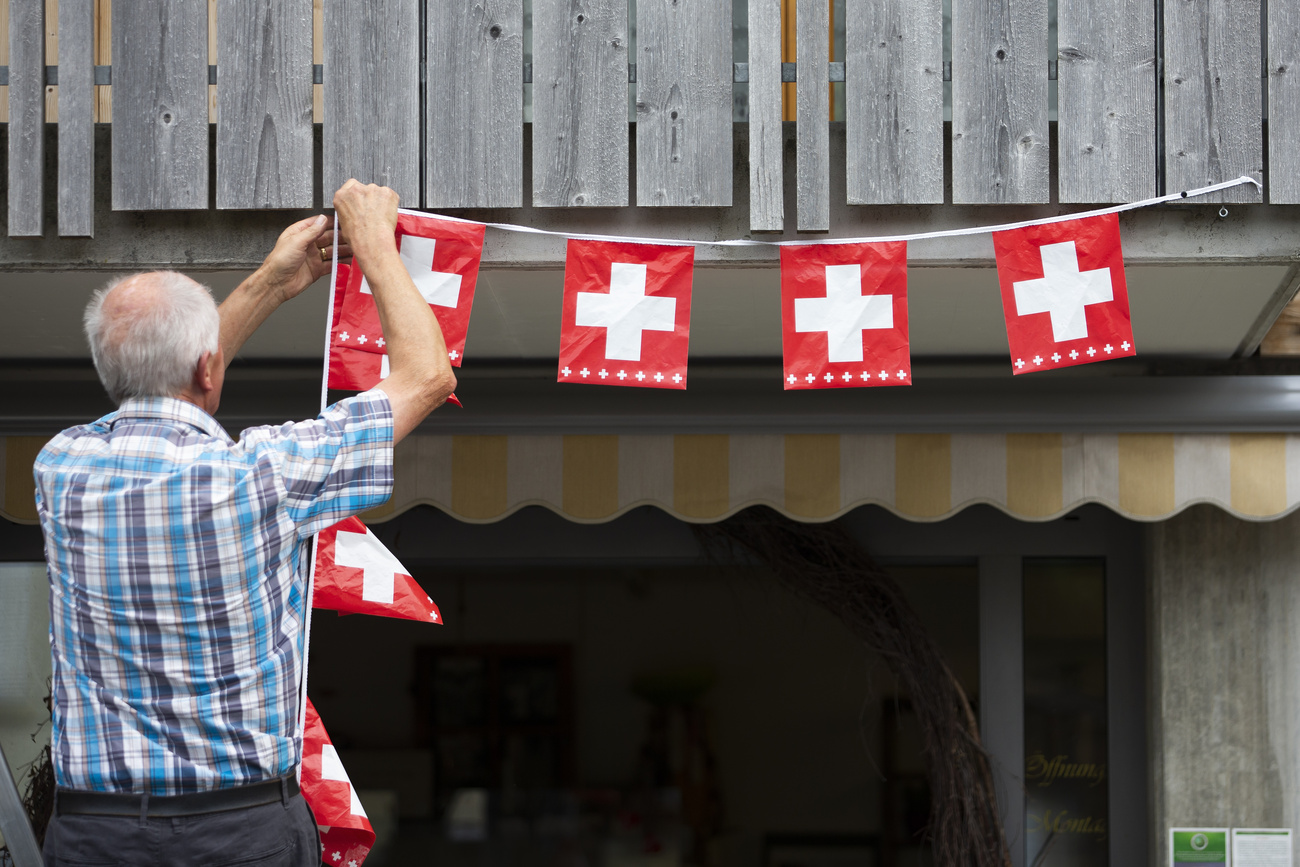
Swiss feel safe and trust security forces, says report

Most Swiss citizens say they feel safe both at night and in public spaces, but want the fight against terrorism stepped up, according to a new survey.
Results of the survey of some 1,200 Swiss citizens were presented Friday in BernExternal link (link in French) as part of the report “Security 2018External link” (PDF in German) by the military academy and Center for Security Studies of the Swiss Federal Technology Institute ETH Zurich.
According to the study, 83% of Swiss report feeling safe when out in public – up 4% on 2017. However, nearly 90% of people interviewed felt that efforts to fight terrorism and political extremism must be strengthened. The Swiss also recognise that despite security measures, there is always some degree of risk. More than two-thirds of respondents believed that better educational opportunities would decrease terrorism worldwide.
Among institutions and authorities, the police are still those in whom the public have most trust (7.9 in 10 respondents), followed by courts (7.4) and the government (7).
More youth support the military
As in previous years, the Swiss report feeling positive toward their army, which is “necessary” in the opinion of 81% of respondents. Nearly eight respondents in ten between the ages of 18-29 said they support the military, which is an increase of 10% compared to 2017.
Switzerland’s famous policy of neutrality is also supported almost unanimously. For most respondents, it is linked to the nation’s identity and allows Switzerland to play a mediating role in conflicts.
ETH Zurich’s Security report has been published since 1999. For this year’s study, 1,209 Swiss citizens were interviewed during the month of January 2018.

More
Swiss feel safer at home, more threatened abroad

In compliance with the JTI standards
More: SWI swissinfo.ch certified by the Journalism Trust Initiative
















![The four-metre-long painting "Sonntag der Bergbauern" [Sunday of the Mountain Farmers, 1923-24/26] had to be removed by a crane from the German Chancellery in Berlin for the exhibition in Bern.](https://www.swissinfo.ch/content/wp-content/uploads/sites/13/2025/12/01_Pressebild_KirchnerxKirchner.jpg?ver=a45b19f3)










You can find an overview of ongoing debates with our journalists here . Please join us!
If you want to start a conversation about a topic raised in this article or want to report factual errors, email us at english@swissinfo.ch.